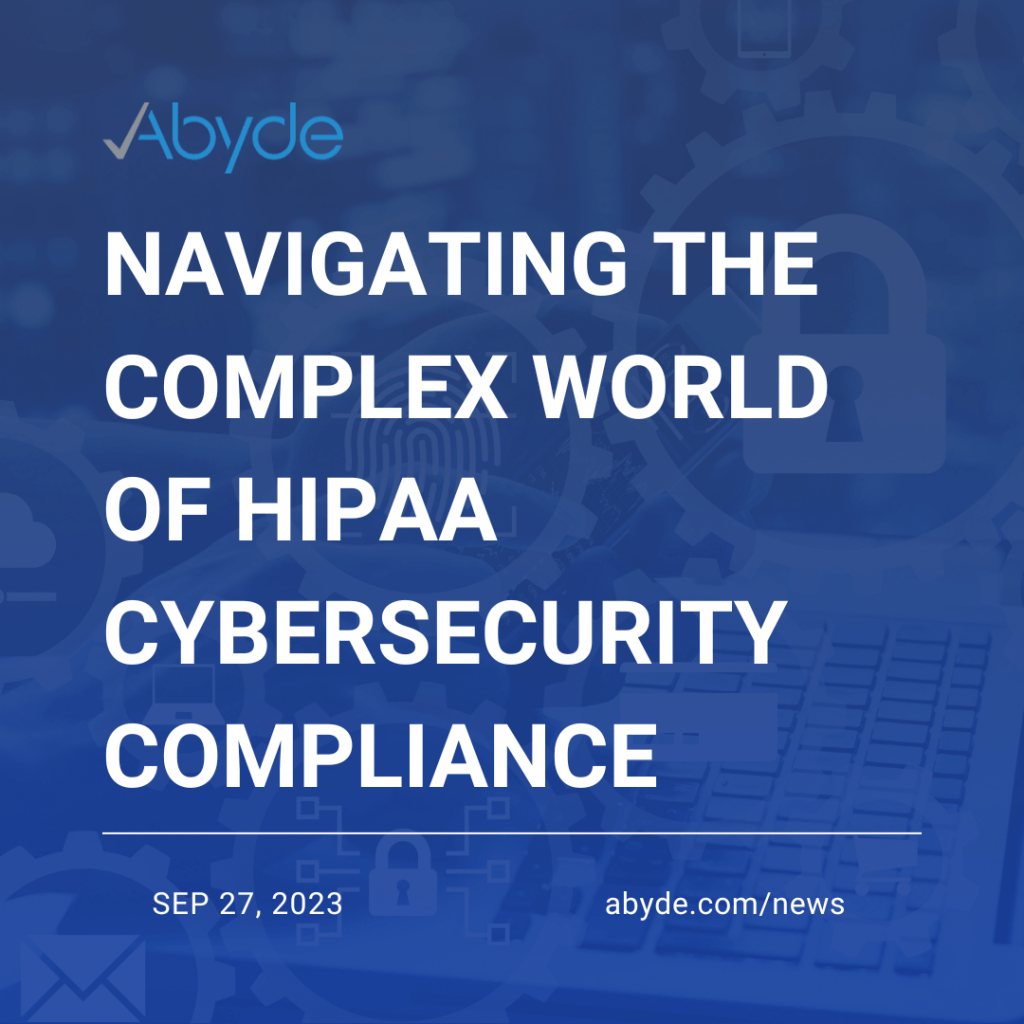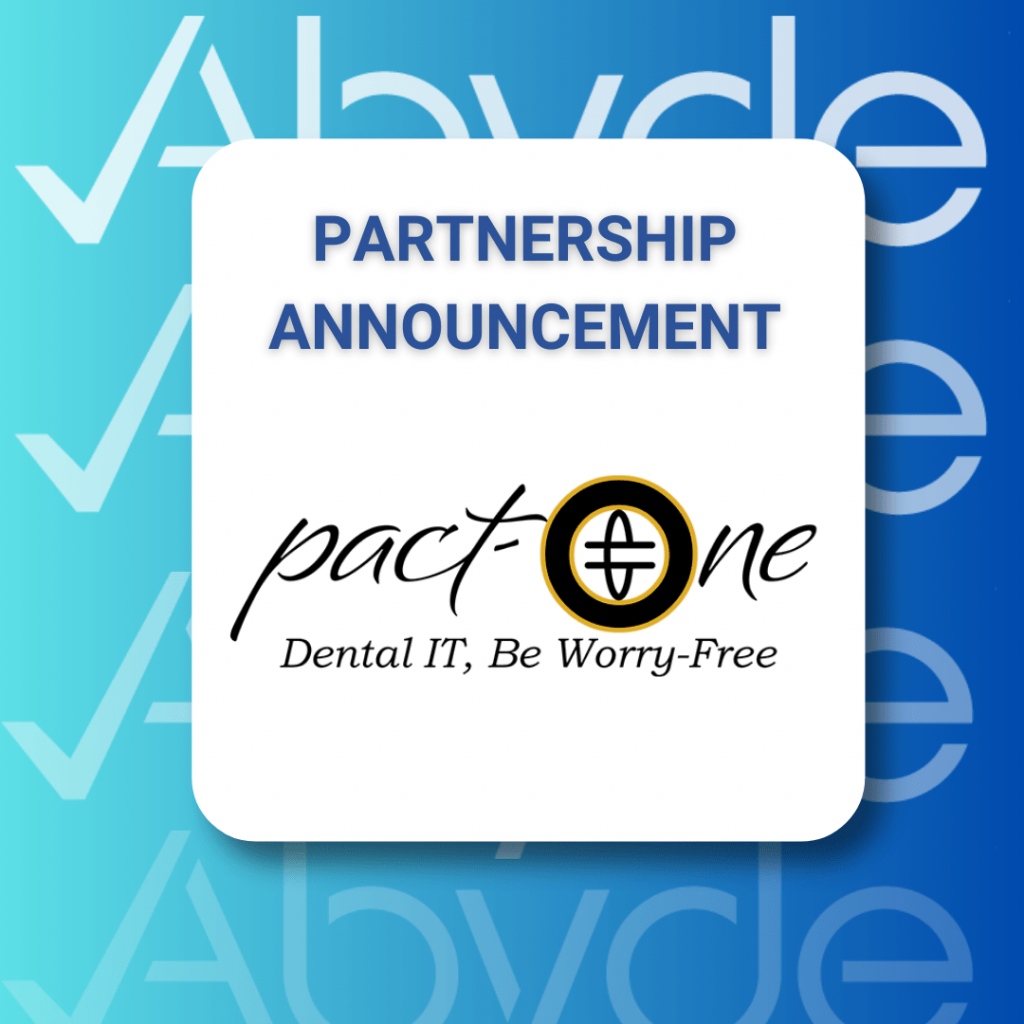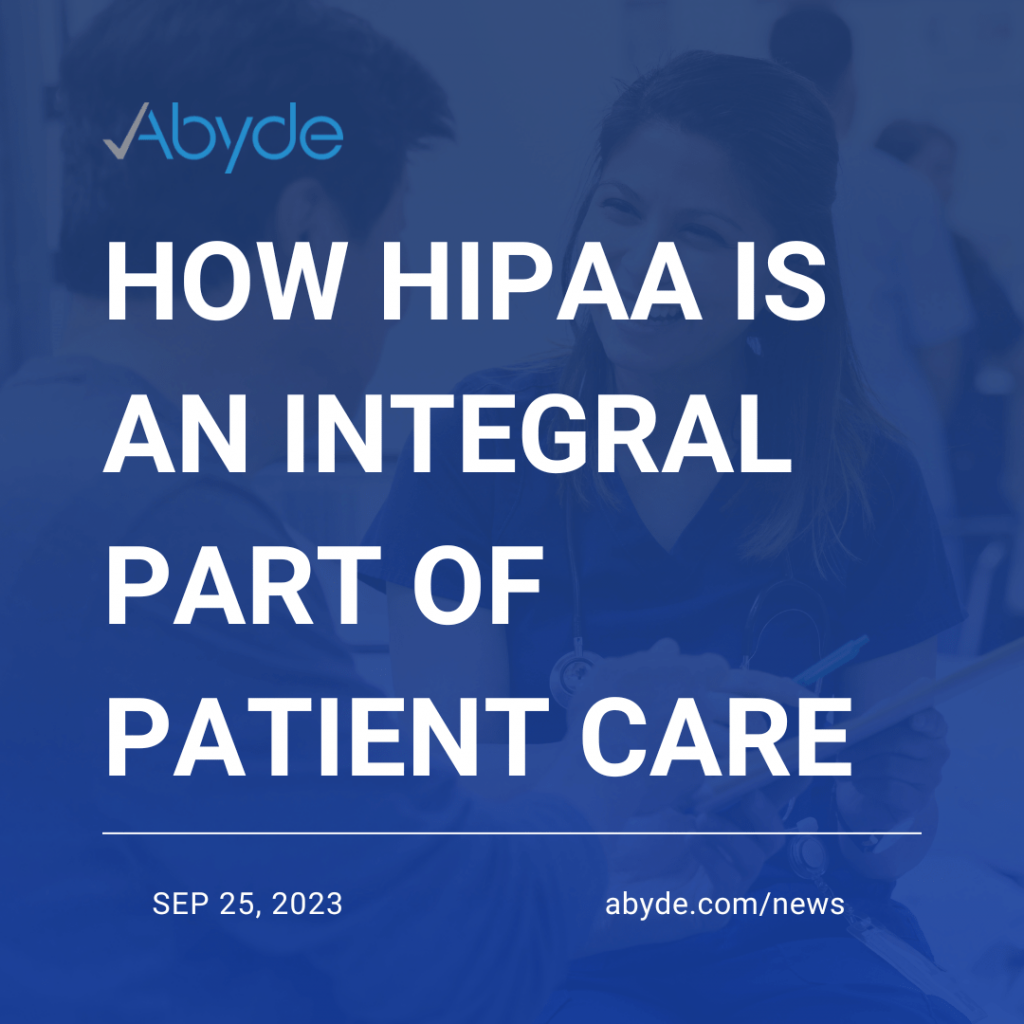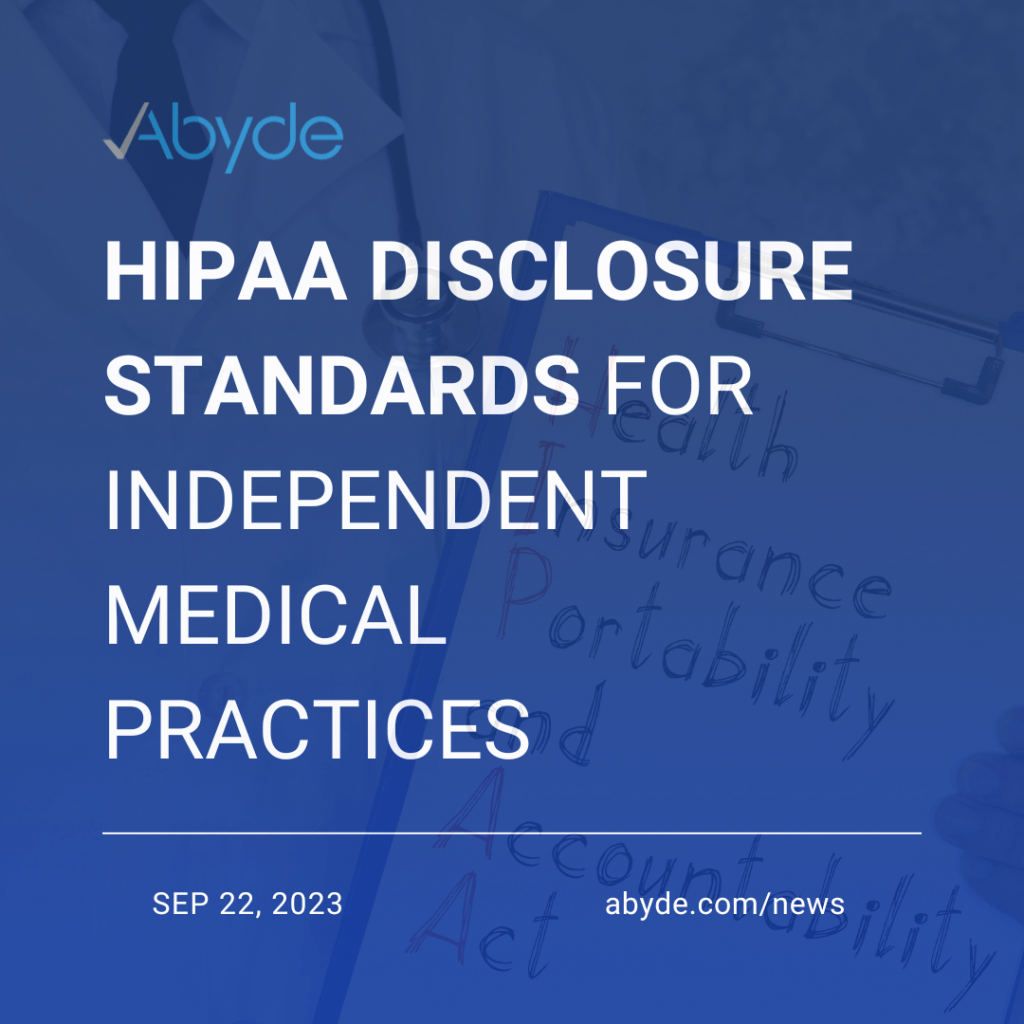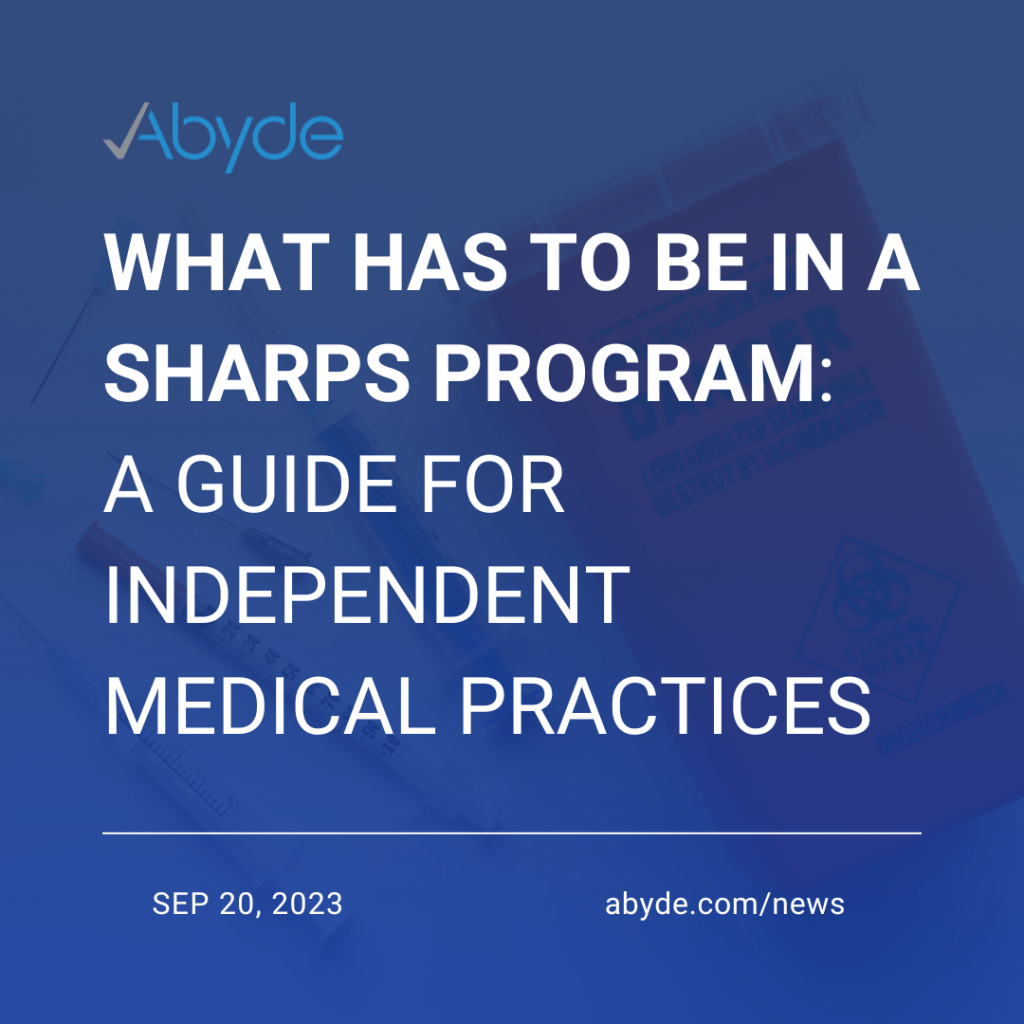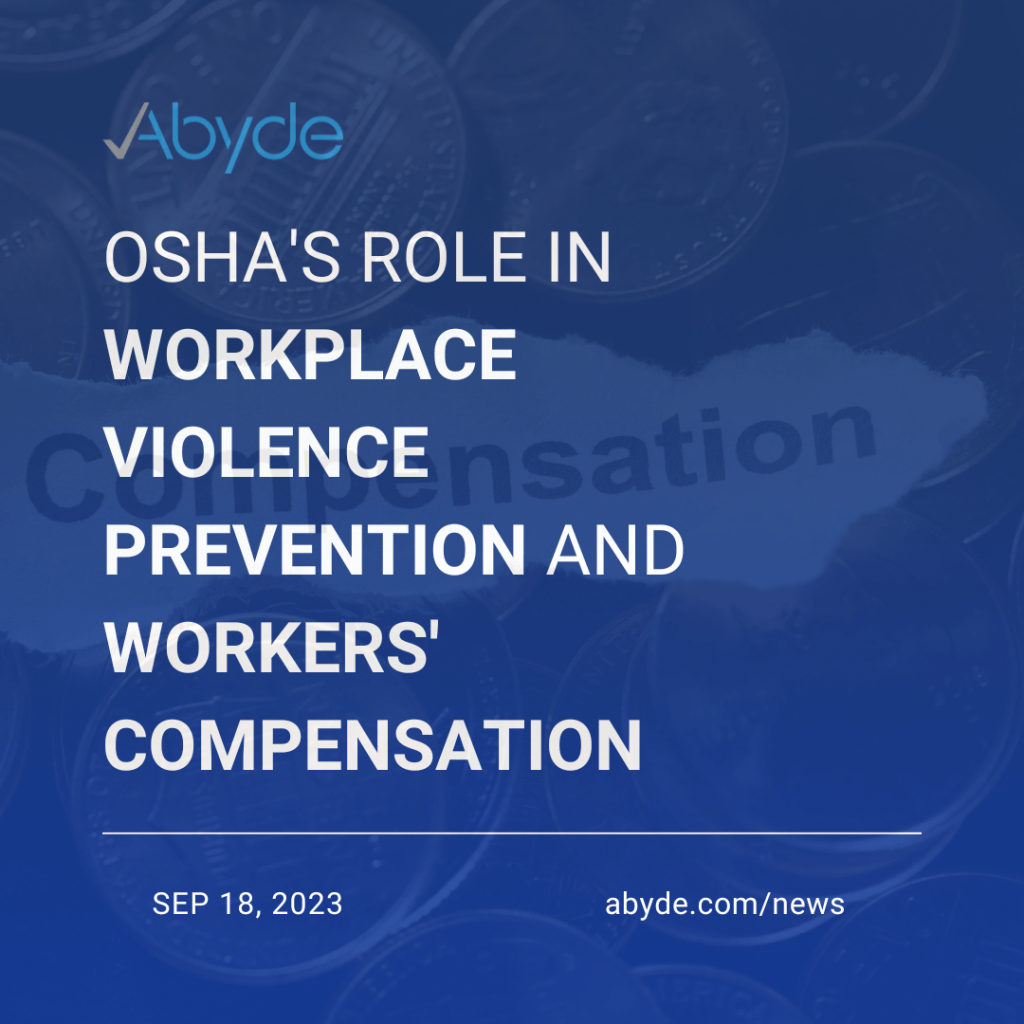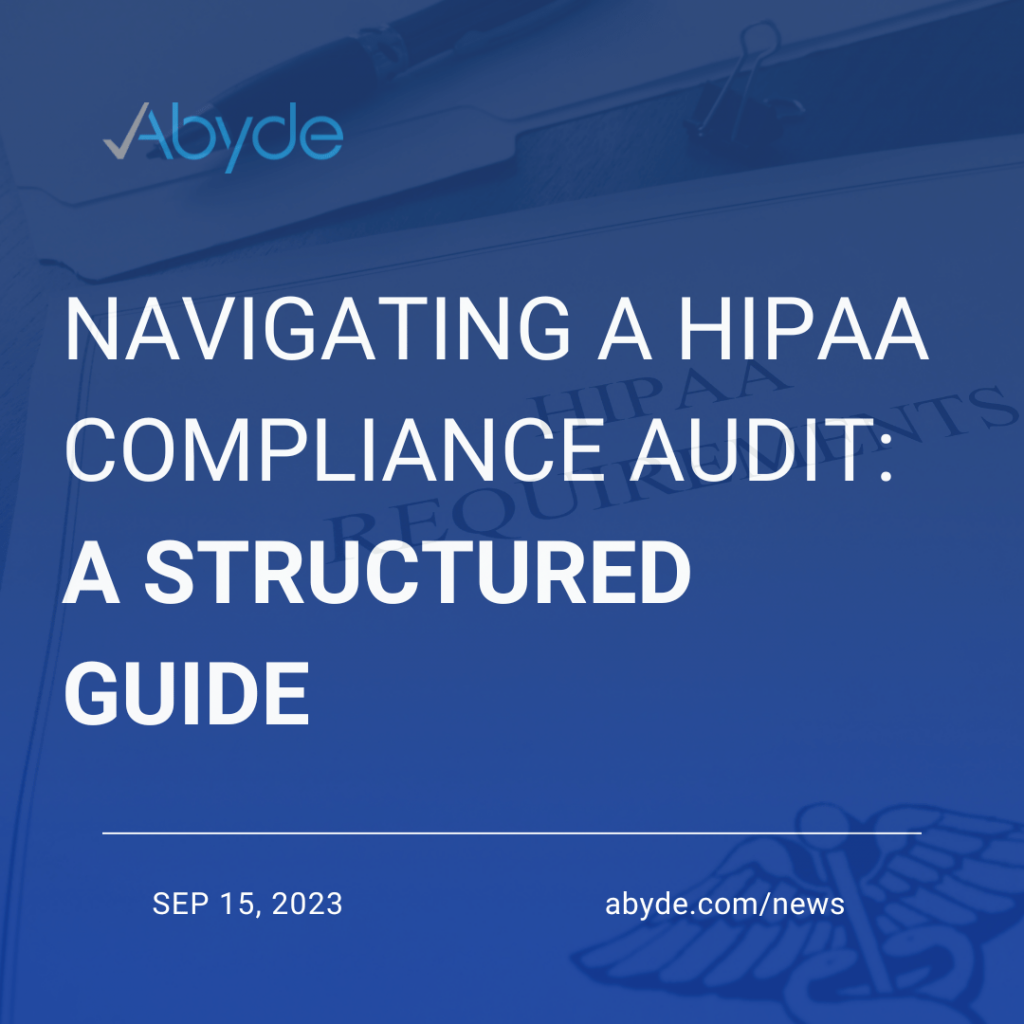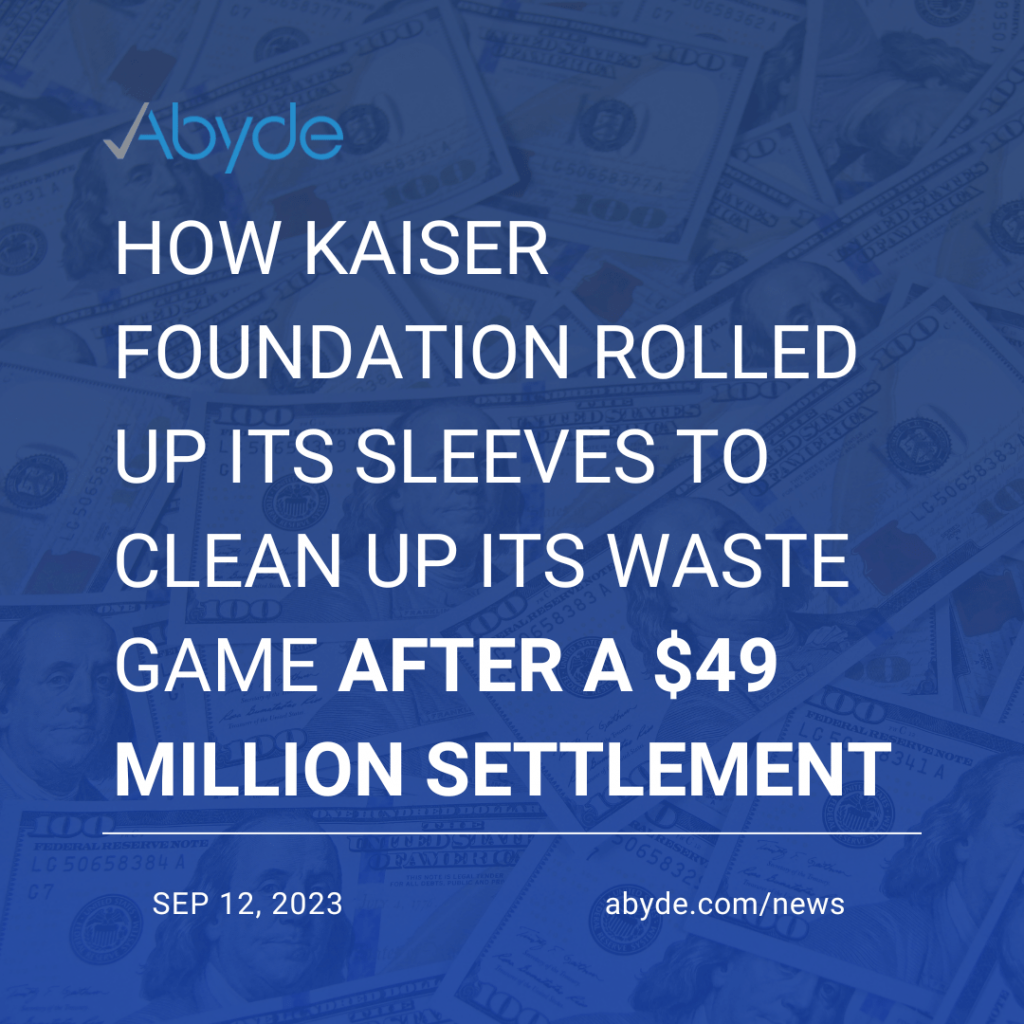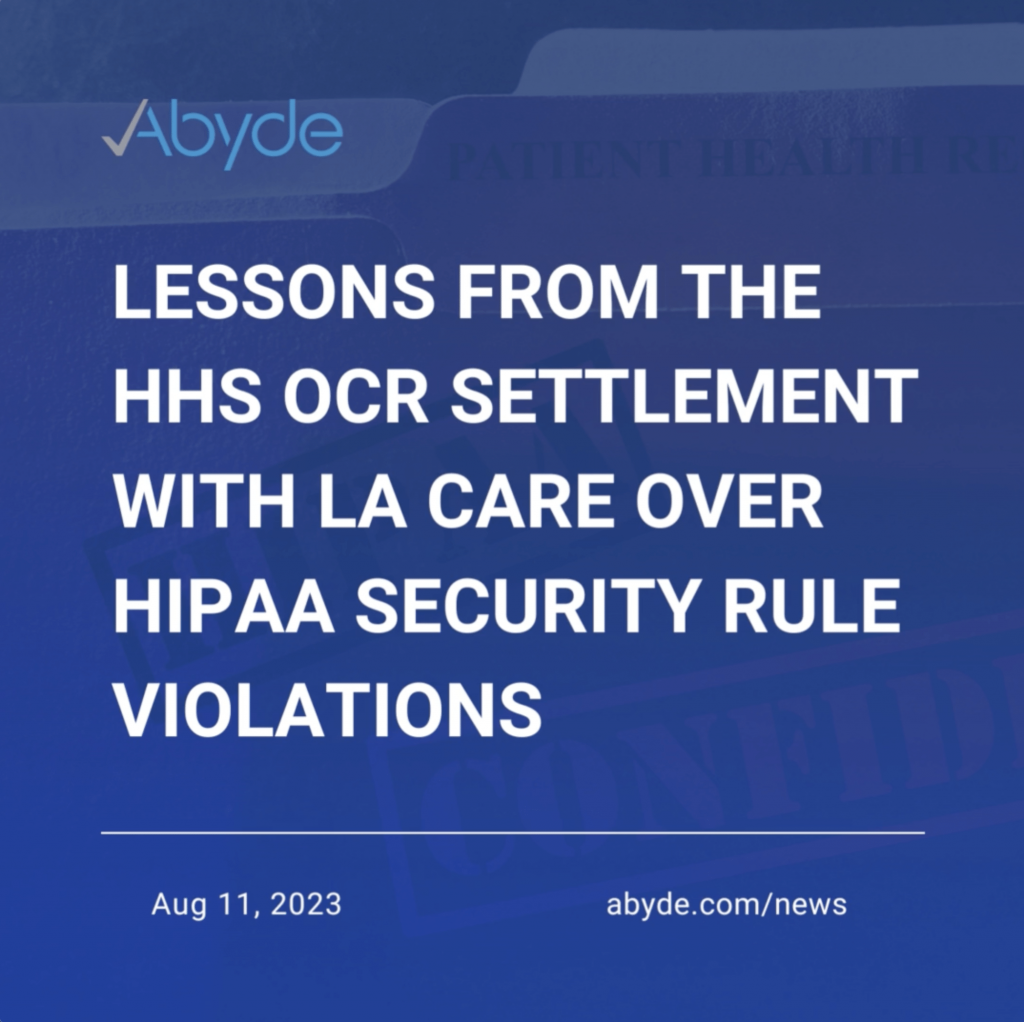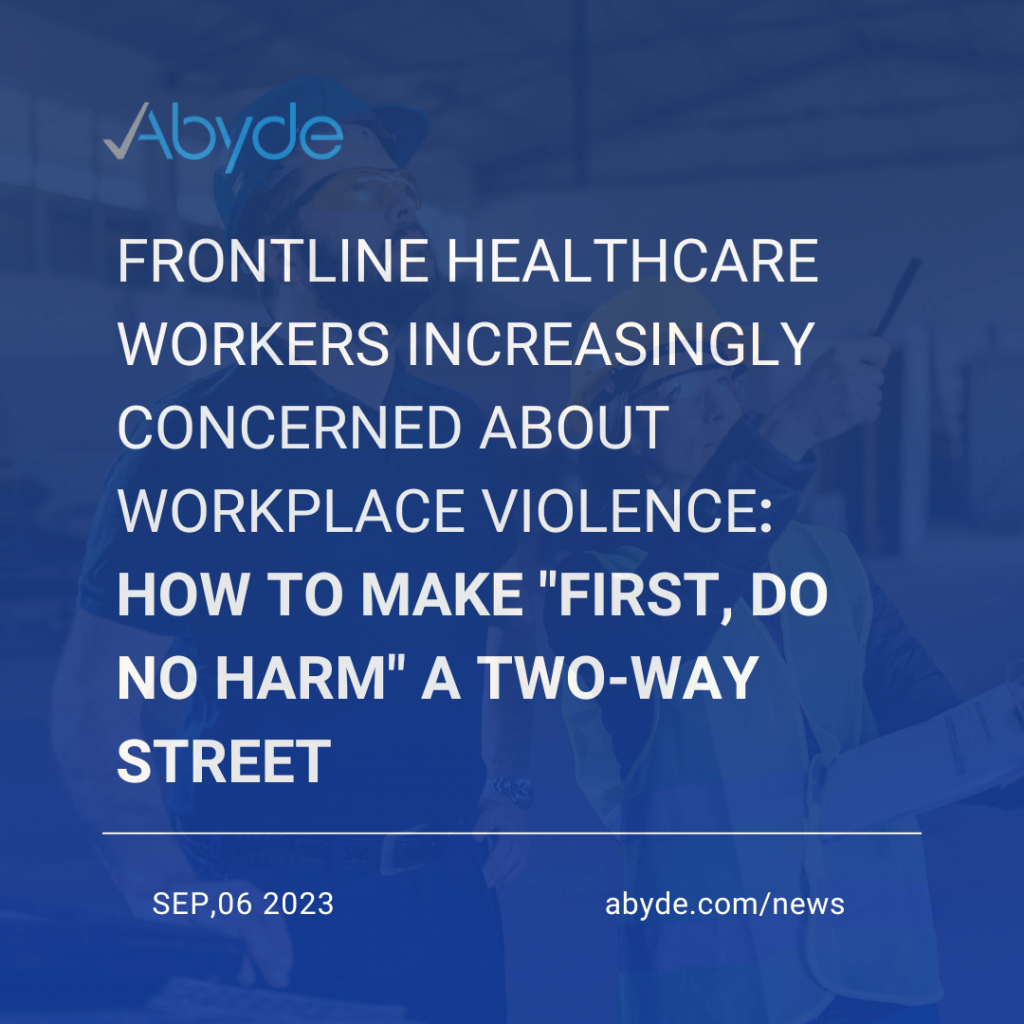September 27, 2023 Healthcare organizations handle a tremendous amount of sensitive data, from patient records to financial information. The Health Insurance Portability and Accountability Act (HIPAA) serves as the regulatory framework that outlines the need for stringent cybersecurity protocols to safeguard this data. Compliance with HIPAA isn’t just a legal obligation; it’s also a critical aspect of building trust with patients and stakeholders. This article will dive deep into the facets of HIPAA cybersecurity compliance, offering a comprehensive guide for healthcare organizations seeking to align with these standards. What is HIPAA? Enacted in 1996, the Health Insurance Portability and Accountability Act (HIPAA) aims to streamline healthcare transactions, reduce healthcare fraud and abuse, and ensure patient information remains confidential. Over time, HIPAA has evolved to address the modern complexities of digital healthcare data, most notably through the Privacy and Security Rules. HIPAA Security Rule The Security Rule outlines the guidelines that healthcare organizations must follow to ensure the confidentiality, integrity, and availability of electronic protected health information (ePHI). It is broken down into three main categories: Importance of Cybersecurity in HIPAA Compliance Cybersecurity in healthcare is not just about preventing unauthorized access; it’s about building a layered defense mechanism that addresses vulnerabilities across various entry points. Failing to comply can result in hefty fines, legal repercussions, and loss of reputation. Core Principles for Compliance Risk Analysis and Management HIPAA requires healthcare entities to conduct periodic risk analyses to identify potential vulnerabilities. Effective risk management plans should include a multi-layered security approach, such as the use of firewalls, antivirus programs, and encryption protocols. Abyde: Your HIPAA Compliance Partner Navigating the intricacies of HIPAA compliance can be daunting. That’s where Abyde comes in. As a leading HIPAA and OSHA Compliance SAAS Company, Abyde offers HIPAA-compliant software designed to simplify compliance, enabling healthcare organizations to focus on what they do best—providing quality care. With features like automated risk assessments, staff training modules, and continuous compliance monitoring, Abyde is the go-to solution for any organization seeking to secure its electronic healthcare data while adhering to regulatory standards. Employee Training Employees often serve as the first line of defense against cyberattacks. Organizations should provide regular training on recognizing phishing emails, using strong passwords, and securing mobile devices with ePHI access. Access Control Under HIPAA guidelines, only authorized individuals should have access to ePHI. This requires stringent access controls, including unique user identifications, emergency access procedures, and regular audits. Data Encryption Encrypting data in transit and at rest is crucial for protecting sensitive information. While HIPAA does not mandate encryption, it is considered a standard practice in safeguarding ePHI. Incident Response In case of a data breach or unauthorized access, healthcare organizations must have an incident response plan that outlines the steps for reporting the breach, identifying the scope, and taking corrective actions. Tools and Technologies Compliance Monitoring and Audits Maintaining continuous compliance requires ongoing monitoring. Regular internal and external audits can help identify areas of improvement and validate that existing safeguards are adequate. Conclusion HIPAA cybersecurity compliance is a complex but indispensable aspect of healthcare management. By understanding the intricacies of the HIPAA Security Rule and implementing a robust cybersecurity framework, healthcare organizations can protect sensitive data, avoid penalties, and, most importantly, earn the trust of their patients and stakeholders. Given the evolving nature of cybersecurity threats, compliance is not a one-time endeavor but an ongoing commitment. Organizations should always stay updated with the latest HIPAA amendments and cybersecurity best practices to ensure that they remain compliant and secure. Recommended Resources By keeping up-to-date with compliance requirements and embracing a culture of continuous improvement, healthcare organizations can confidently navigate the complicated landscape of HIPAA cybersecurity compliance. Contact Abyde today for a complimentary risk assessment consultation by clicking HERE.
Abyde and Pact-One Solutions Join Forces to Revolutionize Dental Compliance Solutions
September 26, 2023 Abyde, a leader in compliance solutions, is thrilled to announce its partnership with Pact-One Solutions, a provider of IT services for dental professionals. CLEARWATER, FLORIDA, UNITED STATES, September 26, 2023 /EINPresswire.com/ — Abyde, the leading provider of simplified HIPAA compliance solutions for dental practices, is thrilled to announce its strategic partnership with Pact-One Solutions, a renowned provider of IT services tailored specifically for dental professionals. This exciting collaboration brings together both companies’ industry expertise and cutting-edge technology to deliver comprehensive and seamless compliance solutions to dental practices nationwide. The partnership between Abyde and Pact-One Solutions aims to address the increasing challenges dental practices face in achieving and maintaining compliance with the complex HIPAA regulations. By combining Abyde’s user-friendly software platform with Pact-One’s extensive experience in dental IT services, the two companies will provide a holistic approach to compliance, ensuring dental practices are fully protected from potential breaches and penalties. “We are excited to partner with Pact-One Solutions to empower dental practices with an all-encompassing compliance solution,” said Matt DiBlasi, CEO of Abyde. “By combining our strengths, we can help dental professionals focus on patient care while ensuring their practices remain compliant with HIPAA regulations.” “We are thrilled to join forces with Abyde to provide dental practices with the highest level of compliance support,” said Dan Edwards, CEO of Pact-One Solutions. “This partnership will enable us to offer a comprehensive suite of IT and compliance solutions that address the unique needs of dental practices, giving them peace of mind and allowing them to concentrate on delivering exceptional dental care.” The collaboration between Abyde and Pact-One Solutions represents a significant step forward in the dental industry’s approach to HIPAA compliance. The two companies are dedicated to revolutionizing compliance solutions and helping dental practices stay ahead in an ever-evolving regulatory landscape. About AbydeAbyde is a leading provider of simplified HIPAA compliance solutions for dental practices. Its user-friendly software platform helps dental professionals navigate the complexities of HIPAA regulations, ensuring their practices remain compliant and protected. With Abyde, dental practices can streamline compliance efforts, reduce administrative burdens, and focus on patient care. About Pact-One SolutionsPact-OneSolutions is a trusted provider of IT services tailored specifically for dental professionals. With extensive experience in the dental industry, Pact-One delivers comprehensive IT solutions, including network security, data backup, disaster recovery, and technology support. They aim to optimize dental practice technology, enhance efficiency, and ensure secure and reliable IT infrastructure. For more information, press only: Abyde Marketing, marketing@abyde.com
How HIPAA is an Integral Part of Patient Care
September 25, 2023 When discussing the U.S. healthcare system, terms like Electronic Health Records (EHR), patient satisfaction, and telehealth often come to mind. Yet, one aspect that serves as the cornerstone of patient care but only sometimes receives the spotlight it deserves is the Health Insurance Portability and Accountability Act (HIPAA). Established in 1996, HIPAA has been a game-changer in shaping the healthcare landscape, primarily by safeguarding patient information and ensuring health data’s confidentiality, integrity, and availability. This article delves into why HIPAA is not just a legal obligation but an integral part of patient care. The Pillars of HIPAA in Patient Care Privacy and Trust The patient entrusts the provider with their most personal and sensitive information in a healthcare setting. HIPAA ensures that this trust isn’t broken by mandating stringent measures to protect patient data from unauthorized access and disclosure. When patients know their information is safe, they are more likely to share the full extent of their medical history, aiding in more accurate diagnoses and effective treatment plans. Quality of Care When healthcare providers adhere to HIPAA’s security rules, they often employ best practices that go beyond just compliance. For example, accurate and immediate access to patient records allows for a faster and more reliable decision-making process. This directly translates to a higher quality of care, minimizing errors and omissions that could harm patient health. Streamlining Communication HIPAA also lays down the guidelines for the lawful sharing of patient information among different healthcare providers. This proves invaluable in situations where multiple specialists care for a single patient. The seamless and secure exchange of information can speed up the treatment process and ensure that all providers are on the same page, enhancing patient care outcomes. Patient Empowerment One of the lesser-known aspects of HIPAA is that it gives patients the right to access and control how their medical information is used or disclosed. This gives them a more active role in their healthcare journey. Moreover, transferring records securely from one provider to another allows for greater flexibility and choice, making the patient an essential stakeholder in their care. The Technology Angle As healthcare systems continue to adopt more advanced technologies like telehealth services and wearable medical devices, the role of HIPAA becomes even more crucial. These platforms handle massive volumes of sensitive data daily, and HIPAA compliance ensures that technological advancements don’t come at the cost of compromised patient privacy. Conclusion HIPAA isn’t just a set of rules that healthcare organizations must abide by to avoid penalties; it’s a framework that places the patient at the center of healthcare. It helps build trust, assures quality, streamlines communication, empowers patients, and paves the way for technology to serve healthcare needs better. By treating HIPAA compliance as a part of patient care, healthcare providers can foster an environment where both the medical and ethical aspects of care are well-addressed, leading to an improved healthcare experience for all involved. By understanding and embracing the role of HIPAA in patient care, healthcare organizations can go beyond mere compliance to deliver a higher standard of care, which is beneficial for both the patient and the healthcare ecosystem. Contact Abyde today for a complimentary consultation by clicking HERE.
HIPAA Disclosure Standards for Independent Medical Practices
September 22, 2023 Navigating the complexities of HIPAA (Health Insurance Portability and Accountability Act) is essential for independent medical practices. This federal law primarily protects the privacy of patients’ health information, specifically the Protected Health Information (PHI). The HIPAA Privacy Rule sets the foundation for PHI protection, stipulating when and how an independent medical practice can share this information without needing explicit consent from patients. Here’s a breakdown for clarity: 1. Treatment, Payment, and Healthcare Operations (TPO): For independent medical practitioners: 2. Consent-Based Disclosures: Individuals can grant written consent to share their PHI: 3. Public Interest and Benefit Activities: There are situations where PHI can be shared for the broader public interest: HIPAA Disclosure Scenarios for Independent Practices: Understanding these disclosure standards ensures that independent medical practices maintain their patients’ trust and compliance with federal regulations. Abyde: HIPAA and OSHA Compliance Software Abyde is a cloud-based software platform that helps healthcare organizations achieve and maintain compliance with HIPAA and OSHA regulations. Abyde provides a comprehensive suite of tools and resources to help organizations with risk assessments, policy and procedure development, employee training, and documentation. Abyde’s compliance software can help organizations: Abyde’s software is easy to use and can be customized to meet the specific needs of any healthcare organization. Abyde also offers a variety of support resources, including online training, webinars, and 24/7 customer support. How Abyde can help healthcare organizations with HIPAA disclosure Abyde’s HIPAA compliance software can help healthcare organizations with HIPAA disclosure by providing tools and resources to help them: Abyde’s software can also help healthcare organizations to: By using Abyde’s HIPAA compliance software, healthcare organizations can help ensure that all PHI disclosures comply with HIPAA regulations and that patient privacy is protected. Conclusion HIPAA is a complex law, but it is crucial to understand the basics of HIPAA privacy and disclosure rules. Understanding these rules can protect your PHI and help ensure your healthcare information is handled appropriately. How Abyde can help you comply with the three standards of HIPAA disclosure; Contact us today for a complimentary consultation by clicking HERE. Links to appropriate resources
What Has to be in a Sharps Program: A Guide for Independent Medical Practices
September 20, 2023 As an independent medical practice, ensuring the safety of both your patients and your staff should be a top priority. One of the vital components of maintaining safety is the implementation of an effective sharps program. This initiative helps in averting injuries and is a significant step towards fostering a secure healthcare environment. Here’s what needs to be included in your sharps program: 1. Comprehensive Training A. Awareness: Foster a safety culture by educating your team on the potential hazards associated with improper handling of sharps. B. Technique: Training should include proper techniques for handling and disposing of sharps to prevent injuries. 2. Proper Tools and Equipment A. Safety-Engineered Devices: Utilize sharps with safety features such as retractable needles and shielded needle devices. B. Disposal Containers: Ensure the availability of puncture-resistant containers for sharps disposal at every point of use. 3. Clear Policies and Procedures A. Disposal Policy: Create a straightforward policy delineating the correct disposal procedures, emphasizing never to overfill sharps containers. B. Reporting Incidents: Develop a clear pathway for promptly reporting and managing sharps injuries. 4. Encourage a Culture of Safety A. Feedback Loop: Establish an open communication channel where staff can report hazards or suggest improvements without fear of reprisal. B. Regular Audits: Regularly evaluate the efficacy of your sharps program and make necessary adjustments. 5. Emergency Response Plan A. Post-Exposure Protocols: Develop protocols for immediate response in case of an exposure incident, including accessible post-exposure prophylaxis. B. Medical Evaluation: Ensure procedures are in place for a quick medical evaluation and follow-up after a sharps injury. 6. Documentation and Records A. Injury Log: Maintain a sharps injury log to record details of the incidents comprehensively. B. Training Records: Keep updated staff training records to track progress and maintain compliance. Conclusion Implementing a robust sharps program is not just a regulatory requirement but a moral imperative in safeguarding the well-being of your staff and patients. Partner with a trustworthy ally like Abyde, who understands the intricacies of healthcare compliance and takes a step toward a safer, more efficient medical practice today. With Abyde by your side, meeting the sharps program requirements becomes as seamless as ever, giving you peace of mind to focus on what matters most — providing exemplary patient care.
OSHA’s Role in Workplace Violence Prevention and Workers’ Compensation
September 18, 2023 Workers’ compensation is a state-mandated insurance program that benefits employees who are injured or become ill on the job. OSHA, or the Occupational Safety and Health Administration, is a federal agency that oversees workplace safety and health. Workers’ Compensation and Workplace Violence Workplace violence is a serious problem that can have devastating consequences for employees and employers alike. Workers’ compensation covers employees injured or killed in workplace violence, regardless of who was at fault. Types of Workplace Violence Claims Covered by Workers’ Compensation Workers’ compensation covers a wide range of workplace violence claims, including: Types of Workplace Violence Claims Not Covered by Workers’ Compensation Workers’ compensation does not cover all workplace violence claims. For example, claims may be denied if the employee was the initial aggressor or if the injury occurred outside the course and scope of employment. Other Risks of Workplace Violence to Employers In addition to workers’ compensation claims, employers who fail to take reasonable steps to prevent workplace violence may also face civil lawsuits from employees and other parties. Preventing Workplace Violence There are a number of things that employers can do to prevent workplace violence, including: What to Do When Workplace Violence Occurs If a workplace violence incident does occur, employers should take the following steps: OSHA’s Role in Workplace Violence Prevention OSHA does not have specific standards for workplace violence prevention. However, OSHA does have measures that can help to prevent workplace violence, such as workplace violence prevention training and hazard assessments. Conclusion Workplace violence is a serious problem that can have devastating consequences for employees and employers alike. By taking steps to prevent workplace violence and providing workers’ compensation benefits to injured employees, employers can help protect their workers and their businesses. Resources
Navigating a HIPAA Compliance Audit: A Structured Guide
September 15, 2023 Receiving notification of a pending HIPAA compliance audit may initially feel like an alarming event. Rest assured, it doesn’t need to be a distressing experience. Let’s put the jests aside and embark on a guided pathway to handling this with seriousness and diligence. Here’s how you can approach this situation methodically and with poise, assisted by Abyde’s comprehensive solutions: Step 1: Stay Calm and Mobilize Your Team Upon receiving the notification, resist the urge to panic. Instead, convene a team meeting to align your strategies and affirm that you can successfully navigate the audit with a coordinated effort. Step 2: Understanding the Audit Letter Deciphering the audit letter is paramount. Invest time in understanding the specifications mentioned in the letter to identify the areas that will be under scrutiny during the audit. Step 3: Engage Your Compliance Officer Your Compliance Officer will be the anchor during this period. Leverage their expertise to lead the preparation phase, focusing on gathering the necessary documents and aligning your operations with HIPAA standards. Step 4: Document Compilation Systematically compile all necessary documents including, but not limited to: Step 5: Conduct a Pre-Audit Before the official audit, conduct a pre-audit to identify any gaps in your compliance. This step ensures that you are well-prepared and confident for the audit day. Step 6: Be a Gracious Host On the audit day, maintain a cooperative and respectful demeanor toward the auditors. Offer refreshments and be willing to assist them throughout the process, facilitating a smoother audit experience. Step 7: Review and Improve Post-audit, take time to review the feedback provided in the auditor’s report. Utilize this information to make necessary amendments, showcasing your commitment to continuous improvement. Step 8: Continuous Compliance Recognize that maintaining compliance is an ongoing endeavor. Regularly update your policies and training to ensure that your practice operates within the stipulated regulations, fostering a culture of continuous compliance. Leveraging Abyde for Compliance Ease With Abyde by your side, you can transform this seemingly daunting task into a manageable one. Abyde offers: With preparation and the right partner like Abyde, you can face a HIPAA audit with confidence and tranquility. Embark on this compliance journey with seriousness and structured guidance, ensuring a successful outcome.
How Kaiser Foundation Rolled Up Its Sleeves to Clean Up Its Waste Game After a $49 Million Settlement
September 12, 2023 Hey there, eco-warriors and healthcare aficionados! Buckle up because we have some intriguing news on the healthcare front that could give you both a sigh of relief and a chuckle. You know the Kaiser Foundation, right? The healthcare giant that’s practically the Beyoncé of California healthcare? Well, they recently found themselves in a bit of a trashy situation. But don’t worry, they’re taking out the trash—literally. What Went Down? Imagine a group of undercover agents not from a blockbuster film but from district attorneys’ offices in counties like San Francisco, San Mateo, and others. Their mission? Inspecting dumpsters at 16 different Kaiser facilities, which, get this, wasn’t even locked. Spoiler alert: The bins weren’t filled with outdated fashion magazines or pizza boxes; they were packed with hazardous and medical waste. We’re talking needles, batteries, and even patient records! Yup, patient records are in the trash. Not good nor compliant! The Rule Book So, some of you might be scratching your heads and thinking, “Wait, isn’t there a rule against this sort of thing?” And, oh boy, are you right! We’ve got the big acronym HIPAA (Health Insurance Portability and Accountability Act) and a handful of Californian laws like the Hazardous Waste Control Law and the Medical Waste Management Act saying, “Nah, that ain’t right!” How Kaiser is Cleaning Up Its Act Kaiser wasn’t like, “Eh, no big deal.” No, siree! They brought in third-party pros to audit over a thousand of their trash piles—now that’s some severe garbage dedication. They’ve also fine-tuned their waste disposal routines faster than you can say “recycle.” And the price for this waste fiasco? Kaiser agreed to a $49 million settlement, with a chunk of it ($37.5 million) going toward civil penalties. They also have to hire an independent auditor for future trash checks. The auditor will ensure that hazardous items and patient info aren’t having dumpster parties together. Attorney General’s Two Cents Rob Bonta, the Attorney General, chimed in to say, “The illegal disposal of hazardous and medical waste is a no-go. Kaiser, as a healthcare provider, should know better.” But he also quickly acknowledged that Kaiser didn’t just shove its head in the sand. They’ve been cooperating to get their waste management back on track. So, what’s the lesson here, folks? Maybe it’s that even giants like Kaiser can trip up, but it’s never too late to get your act together—whether it’s your personal life or your dumpsters. Because, let’s face it, nobody wants their confidential medical history ending up in a landfill next to last week’s tuna casserole. 🗑️✅ Don’t Let Compliance Be Your Blind Spot—Abyde Has Your Back! Navigating the maze of healthcare compliance can be like playing a never-ending game of Whac-A-Mole—just when you think you’ve tackled one issue, another one pops up. And let’s be honest; nobody wants to be the next headline for not properly securing their hazardous waste or protecting patient information. That’s where we come in! 🌟 Abyde specializes in HIPAA and OSHA Compliance solutions. We understand the nitty-gritty details that can keep healthcare administrators up at night, so you don’t have to. With our cutting-edge SAAS solutions, you can rest easy knowing you’re in full compliance with not just federal laws but also state-specific regulations. Our comprehensive audits and easy-to-implement changes can help you avoid dumpster dives and sticky situations like the one Kaiser found itself in. We’re more than just a service; we’re a partner who takes your compliance seriously so you can focus on what really matters—providing exceptional healthcare. So, if you’re looking for a superhero in the complex world of healthcare compliance, look no further. Abyde is the sidekick you didn’t know you needed but won’t be able to live without. Till then, keep your dumpsters clean and your patient records cleaner! 🌱🗂️✨
Lessons from the HHS OCR Settlement with LA Care Over HIPAA Security Rule Violations
September 11, 2023 In a recent episode of “Healthcare’s Most Expensive Mistakes,” LA Care, the nation’s largest publicly operated health plan, made a special guest appearance. They settled a case with the U.S. Department of Health and Human Services’ Office for Civil Rights (HHS / OCR) over potential violations of the HIPAA Security Rule. The cost? A cool $1.3 million and a multi-year “compliance babysitting” plan. Key Violations They say it is all in the details. Well, the violations that led to this hefty settlement were the ones that are overlooked so often. They included: The Importance of Proactive Measures OCR Director Melanie Fontes Rainer emphasized that it’s better to be proactive than reactive—unless you enjoy cutting million-dollar checks to the government. The OCR will be keeping a watchful eye on LA Care for three years, so let’s hope they don’t pull a “Groundhog Day” and repeat their mistakes. Corrective Actions To avoid their past mishaps, LA Care will be following a corrective action plan. Steps include: The LA Care case is a cautionary tale that even healthcare giants can stumble if they don’t take HIPAA seriously. But hey, mistakes are human; it’s how you fix them that defines you. If you’re reading this and are suddenly concerned about your organization’s compliance, you’re not alone—well, unless you’re from LA Care, in which case, hang in there! How Abyde Can Help Now, for healthcare organizations that want to avoid starring in the next episode of “Healthcare’s Most Expensive Mistakes,” meet Abyde. We’re the fairy godparent you wish you had during a compliance crisis. Our HIPAA and OSHA Compliance SAAS platform helps you sail through risk analyses, craft impeccable risk management plans, and even preps you for those scary OCR audits—making compliance as easy as pie. So, if you’re tired of the compliance nightmares and ready to sleep easy, Abyde is your dream come true. Don’t be the next LA Care; be the carefree healthcare provider everyone envies. Embrace peace of mind and secure your organization’s future with Abyde today. Because in the world of healthcare, it’s better to be safe, compliant, and a little bit cheeky than sorry.
Frontline Healthcare Workers Increasingly Concerned About Workplace Violence: How To Make “First, Do No Harm” A Two-Way Street
September 6, 2023 We’ve all heard the phrase, “Laughter is the best medicine.” Yet, a growing concern among frontline healthcare workers casts a long shadow over their ability to provide care with a smile. The issue? Workplace violence. Though this topic is far from a laughing matter, it’s vital to address it in a manner that balances its seriousness with some much-needed optimism. After all, being informed and prepared is half the battle won. The Rise of Workplace Violence in Healthcare Settings According to a recent Occupational Safety and Health Administration (OSHA) study, healthcare professionals are at an elevated risk of experiencing workplace violence. Whether it’s verbal abuse or physical altercations, the threat is very real and affects the entire healthcare ecosystem. It’s not just medical doctors and nurses; even administrative staff, EMTs, and maintenance workers have found themselves receiving violent behavior. This is a concern because it affects the workers and patient care. Why The Concern? When healthcare workers must be on their guard, they cannot entirely focus on patient care. This, in turn, can lead to avoidable mistakes and decreased job satisfaction. Moreover, workplace violence can lead to significant emotional stress, leading to burnout and increased turnover rates. An Ounce of Prevention is Worth a Pound of Cure Healthcare workers are already heroes for battling ailments and saving lives; they shouldn’t have to be action movie stars dodging conflicts, too. Employers can take various measures to ensure a safer environment. These could include: The Silver Lining The healthcare industry is aware of these challenges and is actively working towards implementing solutions. Several state legislatures are already considering bills increasing the penalties for assaulting healthcare workers. Technological innovations such as panic buttons, video cameras, and advanced communication systems are also being implemented. Furthermore, medical associations offer stress-management courses to help healthcare workers cope. “First, do no harm” is the cornerstone of healthcare, and it’s high time we ensure this principle works both ways. As we look to the future, we can take comfort in the collective efforts being made to safeguard our frontline healthcare workers. Workplace violence is a critical issue, but by acknowledging it openly and working together to find practical solutions, we’re not just saving the saviors but also ensuring better care for all patients. Let’s tackle this issue head-on so our healthcare heroes can return to spreading smiles, one patient at a time!
